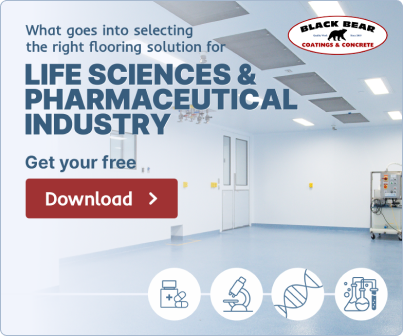Moisture from concrete slabs is a common problem and it can cause significant issues, if it goes unchecked. Have you experienced any of the following symptoms in your facilities?
- Blistered or peeling floor coatings
- Wood floors or floor tiles that are warped or cracked
- Carpets that have signs of mold and mildew
- Softened adhesive that is bleeding between tiles
- Powdery substances on concrete floors
If so, you most likely have a moisture issue. There are several reasons why concrete slabs emit water vapor. The first fact is that moisture is always present in concrete. Newly installed concrete slabs can take as long as four weeks of curing time per inch of thickness to evaporate excess water. When project timelines are fast-tracked, they often don’t allow sufficient time for slabs to dry. Another contributing factor is new, “green” building materials that include more water-based ingredients in the concrete, rather than less environmentally friendly components. Sometimes geography can play a role, as well. In buildings where the slab is installed on top of the earth, a high water table can cause moisture to seep through the concrete.
Regardless of what the root cause is of your concrete moisture problem, it’s not an issue that should be ignored. The good news is that there are several in-situ mitigation strategies that can be used which do not require removing the concrete slab. These include the following:
- Coatings that penetrate the surface of the concrete. These products chemically combine with the concrete and reduce the surface porosity. This inhibits both moisture and soluble alkalis from moving to the surface of the slab. These coatings are typically sprayed on.
- Coatings that retard moisture transmission. Acrylic or specialized epoxy coatings can be applied to concrete slabs. These form a barrier between the concrete and any flooring material that is applied on top of the slab’s surface, preventing moisture from reaching the tile, wood, or carpet.
- Cementitious overlays. These epoxy and copolymer modified products also create a barrier between the concrete slab and flooring. Although they are not 100% impermeable to water vapor, they are designed to allow moisture to develop and not harm the flooring materials.
With all of these solutions, it’s essential to prepare the concrete properly. Another option is to forego tile, wood, wood or carpet and go with a polished concrete or stained concrete finish. These alternatives are not adversely affected by vapor transmission from the concrete.
As you decide which path to pursue formoisture mitigation, Black Bear Coatings & Concrete would be happy to discuss what solution would best fit your needs. We have years of experience working with industry leaders in a variety of sectors. Black Bear is a leading concrete and coatings flooring company that serves New England – Maine, Massachusetts, New Hampshire, Northern Connecticut, Rhode Island, Vermont, as well as New York (north of New York City). Rest assured that we have the staff, equipment, and expertise needed to make your floor project a success.



